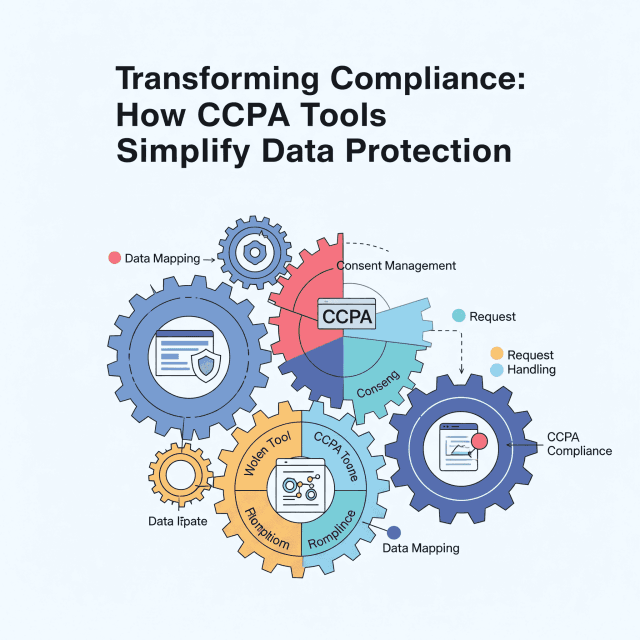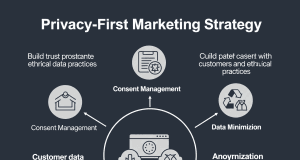In an era marked by increasing concerns over privacy and data security, businesses face the daunting challenge of navigating the complex landscape of data protection regulations. Among these, the California Consumer Privacy Act (CCPA) stands out as a significant piece of legislation that aims to give consumers greater control over their personal information. As organizations strive to comply with CCPA mandates, they are increasingly turning to specialized tools designed to simplify compliance efforts. This article explores how CCPA tools transform the compliance landscape and enhance data protection.
Understanding the CCPA
The CCPA, which went into effect in January 2020, is one of the most comprehensive data privacy laws in the United States. It grants California residents several rights concerning their personal information, including the right to know what personal data is collected, the right to request its deletion, and the right to opt-out of data sales. Violations can result in hefty fines, making compliance not just a legal necessity but a critical component of a company’s reputation and customer trust.
The Role of CCPA Tools
Given the complexity of CCPA compliance, businesses have begun leveraging tools specifically designed to streamline their data protection practices. Here’s how these tools play a vital role in transforming compliance:
1. Automation of Data Mapping
One of the foundational steps in achieving CCPA compliance is understanding what data a business collects and how it is used. CCPA tools typically come with robust data mapping capabilities that automate the identification and classification of personal data. By maintaining a comprehensive inventory of data sources, organizations can quickly ascertain what data falls under CCPA protections, thus facilitating easier compliance.
2. Consumer Request Management
CCPA empowers consumers with the right to access, delete, and opt-out of the sale of their personal data. This can lead to a significant influx of consumer requests that companies must manage effectively. CCPA tools often include features that simplify request handling, allowing businesses to track, process, and respond to requests efficiently. These tools help ensure compliance timelines are met and reduce the risk of mishandling sensitive information.
3. Risk Assessment and Mitigation
To avoid penalties, organizations must conduct regular assessments of their data handling practices. CCPA tools often come equipped with risk assessment features that help identify potential vulnerabilities in data processes. By analyzing workflows, these tools can highlight areas of concern, allowing organizations to address risks proactively and refine their data protection strategies.
4. Policy Management and Documentation
Maintaining clear policies and documentation is essential for CCPA compliance. CCPA tools assist in drafting and updating privacy policies to ensure they align with regulatory requirements. These tools can also provide templates and guidance, making it easier for companies to communicate their data practices transparently to consumers.
5. Integration with Existing Systems
Many businesses operate with multiple software systems and databases. CCPA compliance tools are designed to integrate seamlessly with existing systems, ensuring minimal disruption to day-to-day operations. This integration enables a centralized approach to data management, improving overall efficiency and compliance tracking.
6. Facilitating Training and Awareness
Compliance is not solely about implementing technology; it also requires fostering a culture of privacy within an organization. CCPA tools often include training modules to educate employees about data protection best practices and regulatory obligations. By raising awareness and knowledge, businesses can ensure that all team members understand their role in maintaining compliance.
The Business Benefits
While the primary goal of CCPA tools is compliance, their benefits extend far beyond regulatory adherence. Organizations that invest in these tools often see enhanced operational efficiency, improved customer trust, and a stronger reputation in the marketplace. Moreover, by prioritizing data protection, companies position themselves as responsible stewards of consumer information, which can lead to increased customer loyalty and competitive advantage.
Conclusion
As data protection regulations like the CCPA become more prevalent, businesses must adapt to the evolving landscape of compliance. By embracing CCPA-specific tools, organizations can simplify their compliance efforts, mitigate risks, and enhance their overall data protection strategies. The transformational nature of these tools not only supports compliance but also fosters a culture of privacy and security, ensuring that businesses are well-equipped to navigate the challenges of the digital age. As consumer expectations continue to rise, investing in CCPA tools will be essential for organizations committed to safeguarding personal information and building trust with their customers.








